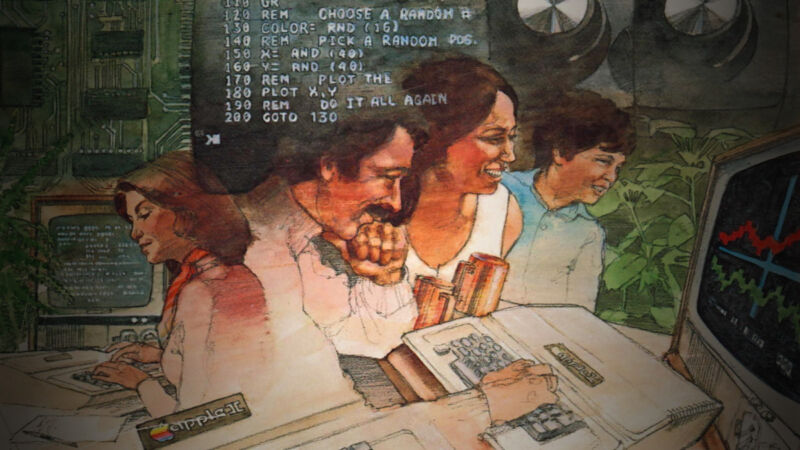Enlarge / Part of the cover illustration from “The Applesoft Tutorial” BASIC manual that shipped with the Apple II computer starting in 1981. (credit: Apple, Inc.)
Sixty years ago, on May 1, 1964, at 4 am in the morning, a quiet revolution in computing began at Dartmouth College. That’s when mathematicians John G. Kemeny and Thomas E. Kurtz successfully ran the first program written in their newly developed BASIC (Beginner’s All-Purpose Symbolic Instruction Code) programming language on the college’s General Electric GE-225 mainframe.
Little did they know that their creation would go on to democratize computing and inspire generations of programmers over the next six decades.
What is BASIC?
In its most traditional form, BASIC is an interpreted programming language that runs line by line, with line numbers. A typical program might look something like this:
Read 13 remaining paragraphs | Comments
